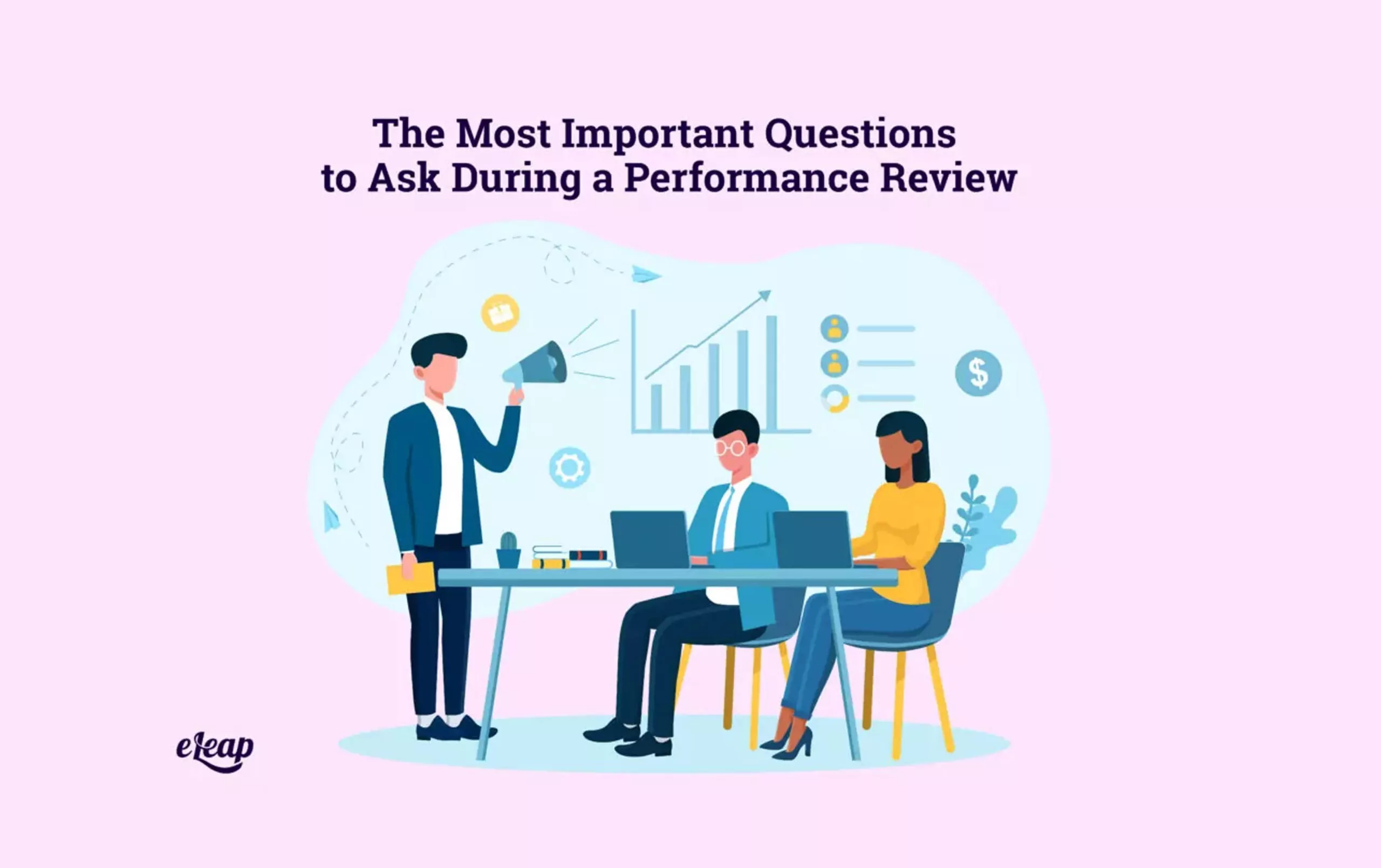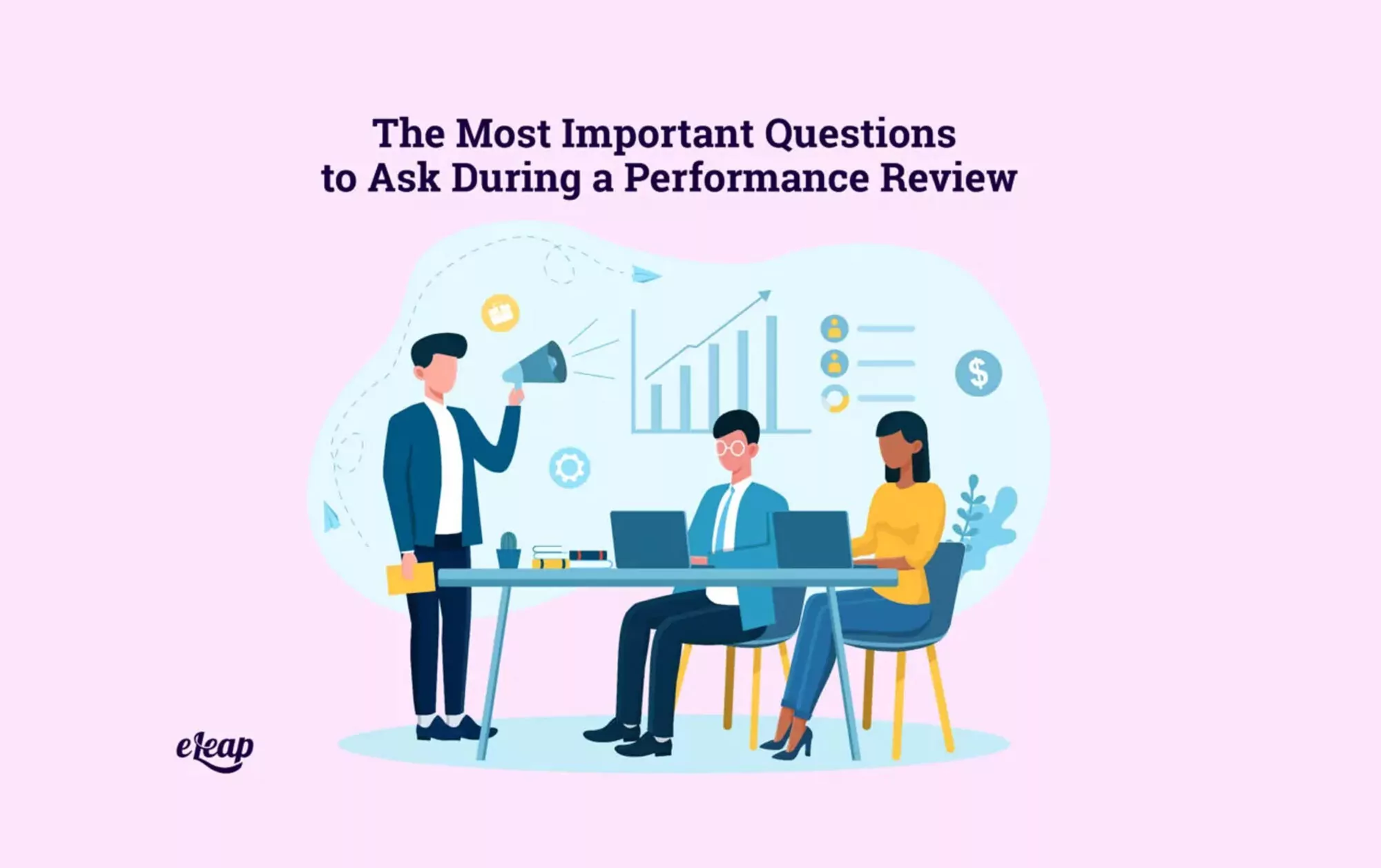The Most Important Questions to Ask During a Performance Review

Performance reviews – they’re often the bane of an employee’s existence. They can feel arbitrary, one-sided, even summarily dismissed. They don’t have to be that way, though. When combined with modern performance management techniques, such as regular check-ins and one-one-ones, full-blown performance reviews can once more regain their position as valuable tools that encourage both employees and managers to strive for new heights.
The key? Asking questions. However, they must be the right questions. It’s also important that both the manager and the employee have an opportunity to seek information. In this post, we will highlight some of the most critical questions for both to ask, as well as why they matter.

For Employees
We’ll begin with a rather non-traditional choice – the employee. Usually, performance review-focused content is geared for managers. That’s an unfortunate fact, and one that should change with today’s better understanding of what really motivates people to give an employer their all.
Is there room for growth in our department?
This is an important question for a couple of reasons. First, it shows that you want to move up and take on more responsibility with the employer. Second, it can also imply that if there isn’t room for growth in the current department, you might be open to changing positions to move forward in the company.
What goals should I work toward?
This question is important because it tells the manager that you’re open to their guidance and willing to do what’s necessary.
How can I help our team thrive?
With this question, you’re indicating that you are not just a team player, but that you want to take an active hand in helping your teammates achieve more.
How are you measuring my progress?
This question is important, as it demands accountability from the manager in terms of explaining how progress/performance is being measured and encourages a discussion not just of the measurement methods/tools, but also what might constitute “progress”. When used correctly, it can help get both the employee and manager on the same page moving forward.
What skills should I learn to grow with the company?
Another growth-focused question, this one achieves several things. Obviously, it alerts the manager that you want to move up. However, it also tells them that you are open to learning and development. It can kickstart additional training that helps you accelerate your career.
How can I support my team better?
This question tells the manager that you understand you are part of a team, and that success is a collaborative effort. It also highlights the fact that you want to help everyone succeed. After all, a rising tide raises all boats.
Note that these are just some basic examples, although all of them are critical. It is also important to come up with questions that are more focused on your unique situation and history with the company, as well as your goals with your employer.
For Managers
Managers are usually the questioners in a performance review. However, you must ask the right questions. These will do more than just provide you with information – they can bridge the gap between you and the employee, strengthen relationships, and even provide encouragement.
What goals did you meet? Which goals fell short?
This question is important for a couple of reasons. First, it provides the employee an opportunity to discuss what went right and to take a sense of ownership over those accomplishments. It also gives them a chance to recognize that there might have been some goals that simply fell by the wayside, as well as a chance to discuss why that happened.
What are your ideal working conditions to be the most productive?
This question helps ensure that the employee has the environment necessary for success. While not all working conditions can be changed, with knowledge of what’s necessary to maintain productivity, it is possible to make positive changes with a lasting impact.
What skills do you have that you believe we could use more effectively?
Every employee believes that they have skills or knowledge that is just not being used correctly, or at all. Take the time to uncover what those might be and then whether or not they can be fitted into the department’s plans for success. It’s all part of engaging employees, making them feel valued, and ensuring that they have a position that feels meaningful.
What do you want your next position with the company to be?
This question does several things at once. It encourages the employee to open up about their career aspirations, but also tells them that there is a path forward/upward with the company. It helps ensure that they are engaged while simultaneously putting the path under their feet. Make sure to discuss not just the position they want, but how their responsibilities will change and why they are interested/feel that the position is a good fit for them.
Give me two or three things that you feel I could do better in my job as a manager.
Employee-manager feedback is increasingly important. It’s all about engagement – when you ask employees for feedback on your own performance, you show that you are open to critique, that you realize you are not perfect, and that you want to do as good a job as possible. However, it’s not enough to go through this by rote. You need to actually show that you’re listening and act on relevant feedback.
Rinse and Repeat
Performance reviews should be part of your regular feedback and growth cycle. When combined with check-ins and one-on-ones, they provide the foundation necessary for success, both for employees and the teams they’re part of. Use the questions above and iterations of them to dig deep, surface meaningful information, and make better decisions.
What have some of your greatest successes been when it comes to employee performance reviews? What are some examples of challenging situations you handled well? Share your thoughts in the comments below.